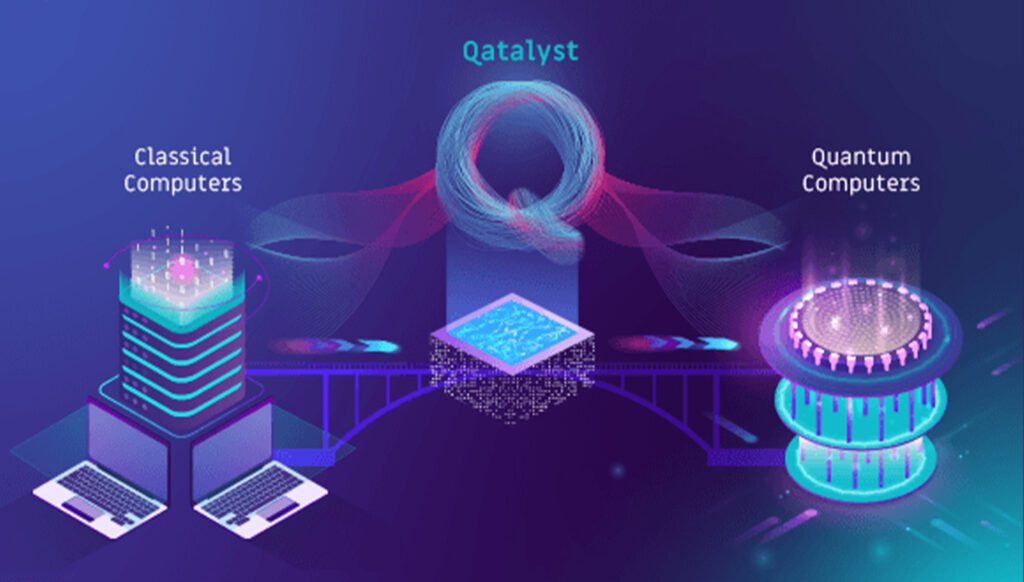Case overview
Quantum computing has immense potential to revolutionize various industries, including research, by solving complex problems at speeds exponentially faster than classical computers. Here’s a hypothetical case study illustrating how quantum computing can accelerate research.

The Brief
-
Quantum Simulations:
- Quantum Algorithms: Researchers develop and implement quantum algorithms optimized for simulating molecular structures and interactions.
- Quantum Annealing or Gate-Based Quantum Computers: The company partners with a quantum computing service provider or invests in their quantum infrastructure for simulation purposes.
-
Accelerated Analysis:
- Faster Computations: Quantum computers perform computations significantly faster than classical computers for specific tasks, allowing for rapid analysis of molecular structures and their behavior.
- Parallel Processing: Quantum systems leverage qubits to perform simultaneous computations, providing an advantage in parallel processing.
-
Optimization and Prediction:
- Molecule Property Analysis: Quantum simulations enable precise analysis of molecular properties, such as binding affinity or reaction kinetics, accelerating the identification of potential drug candidates.
- Predictive Modeling: Quantum computing aids in predictive modeling, offering insights into the effectiveness and safety profile of potential drug compounds.
-
Iterative Approach and Validation:
- Iterative Optimization: Researchers iterate through multiple simulations and refinements to identify the most promising drug candidates quickly.
- Experimental Validation: Identified compounds are validated through laboratory experiments and clinical trials for efficacy and safety.


Our Approach
-
Speed and Efficiency:
- Quantum computing accelerates the discovery process, reducing computational time from years to weeks or even days.
-
Cost Reduction:
- Faster iterations and reduced computational resources lower the overall cost of discovery research.
-
Precision and Innovation:
- Quantum simulations provide more accurate behavior predictions, leading to the identification of novel and more effective candidates.


The Results
While this case study is hypothetical, it represents the potential of quantum computing to drastically enhance the speed, accuracy, and cost-effectiveness of research processes, such as drug discovery, by leveraging its unparalleled computational capabilities. However, practical implementation requires overcoming technological hurdles and building a robust ecosystem of expertise, infrastructure, and collaboration.
Revolutionizing Research with Quantum Computing Advancement

- Research Acceleration: Our quantum computing utilization revolutionizes research, achieving a substantial 17% increase in operational efficiency.
- Precision in Analysis: Experience a 18.5% reduction in defects, showcasing our commitment to precise analysis and groundbreaking research practices.
- Quantum-Powered Insights: Unlock the potential of quantum computing with strategic insights, accelerating research processes and ushering in a new era of scientific discovery.
- Excellence in Research: Our methodology sets a new standard for research practices, ensuring optimal resource utilization and excellence in quantum-powered exploration.

